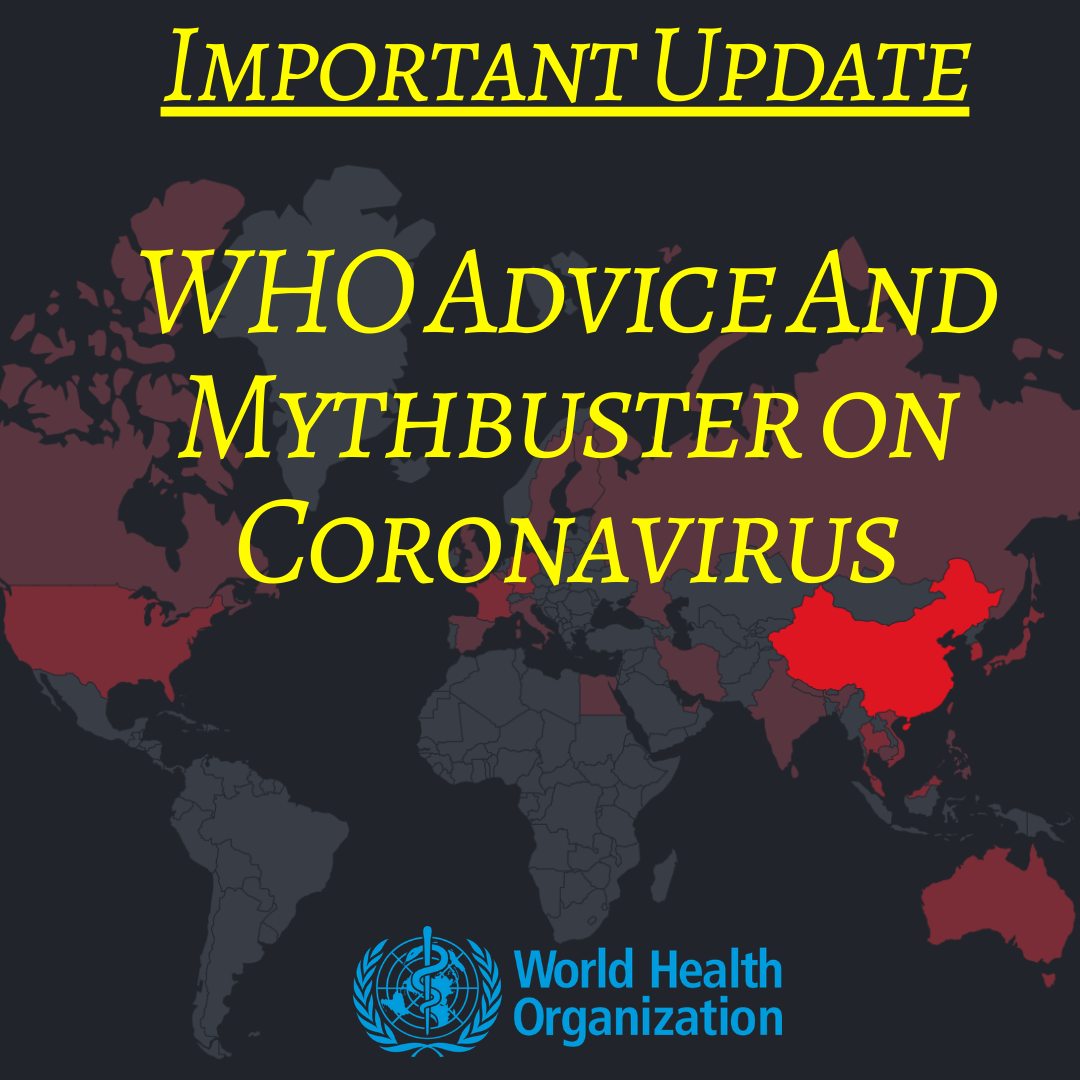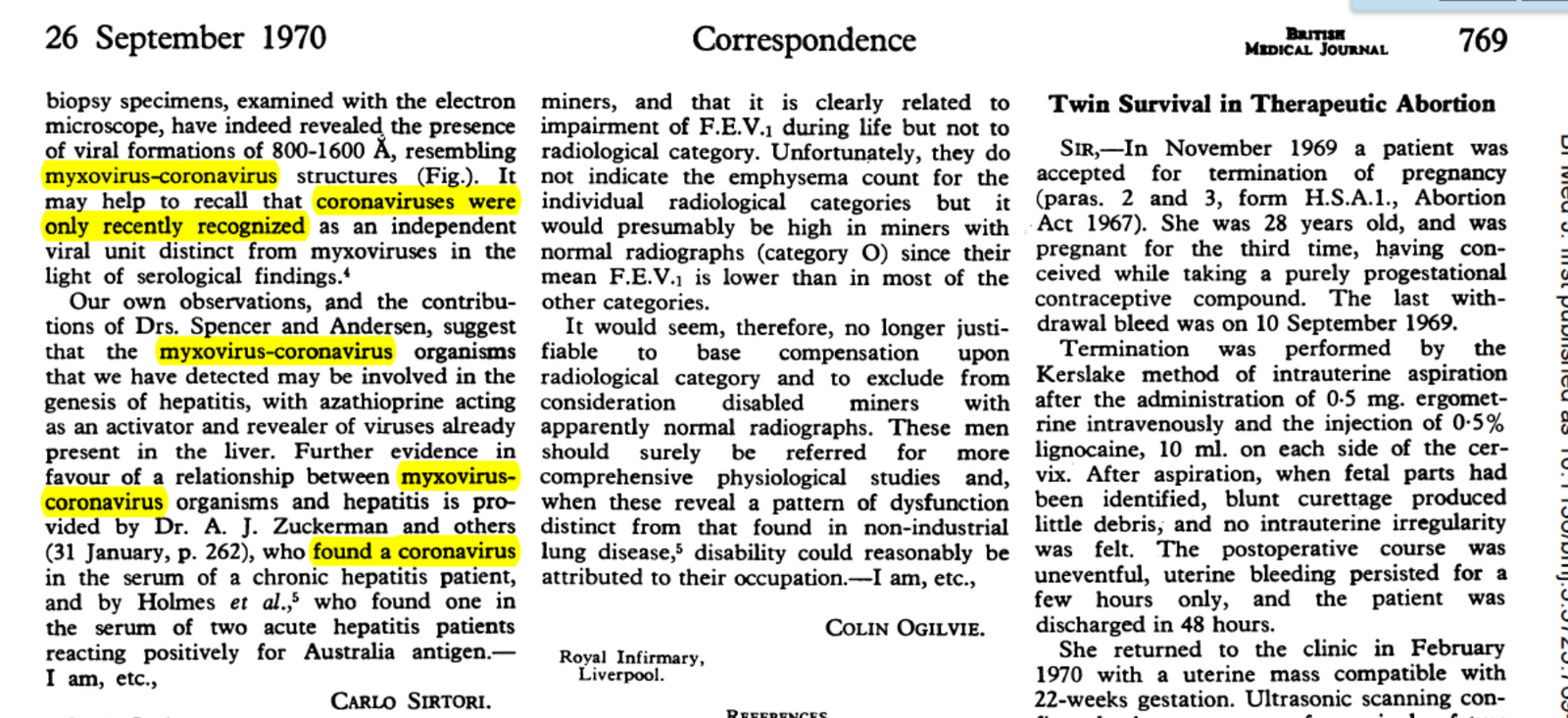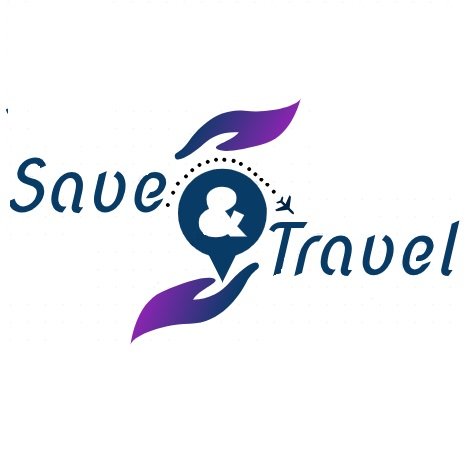
Important Update – WHO Advice To Fight Coronavirus
Table of Contents
What Are Coronavirus
It is a virus with a single strand RNA. They are of four types – alpha, beta, delta and gamma, only the alpha and beta-type are known to infect people.
It’s other strains such as Middle East Respiratory Syndrome (MERS-CoV) and Severe Acute Respiratory Syndrome (SARS-CoV) coronavirus that has caused a global outbreak in the past. The new strain that is responsible for an outbreak in China is named as a novel coronavirus (nCoV).
What Is COVID-19
The recent outbreak of novel coronavirus (nCoV) is termed as COVID-19.
First Coronavirus Report
You may be thinking that Coronavirus is something new. Although the term “Coronavirus” has only become familiar after the outbreak in Wuhan Province in China, the coronavirus is reported as old as 1954. Here is one of the earlier report published in the British Medical Journal.

Latest Update on Coronavirus Cases Worldwide
WHO’s Advice On Protection From Coronavirus
-
Wash your hands frequently
Wash your hands frequently with soap and water or use an alcohol-based hand rub if your hands are not visibly dirty.
Why? Washing your hands with soap and water or using alcohol-based hand rub eliminates the virus if it is on your hands.
-
Practice respiratory hygiene
When coughing and sneezing, cover mouth and nose with flexed elbow or tissue – discard tissue immediately into a closed bin and clean your hands with alcohol-based hand rub or soap and water.
Why? Covering your mouth and nose when coughing and sneezing prevent the spread of germs and viruses. If you sneeze or cough into your hands, you may contaminate objects or people that you touch.
-
Maintain social distancing
Maintain at least 1 meter (3 feet) distance between yourself and other people, particularly those who are coughing, sneezing and have a fever.
Why? When someone who is infected with a respiratory disease, like 2019-nCoV, coughs or sneezes they project small droplets containing the virus. If you are too close, you can breathe in the virus.
-
Avoid touching eyes, nose and mouth
Why? Hands touch many surfaces which can be contaminated with the virus. If you touch your eyes, nose or mouth with your contaminated hands, you can transfer the virus from the surface to yourself.
-
If you have fever, cough and difficulty breathing, seek medical care early
Tell your health care provider if you have traveled in an area in China where 2019-nCoV has been reported, or if you have been in close contact with someone who has traveled from China and has respiratory symptoms.
Why? Whenever you have fever, cough and difficulty breathing it’s important to seek medical attention promptly as this may be due to a respiratory infection or other serious condition. Respiratory symptoms with fever can have a range of causes, and depending on your personal travel history and circumstances, 2019-nCoV could be one of them.
-
If you have mild respiratory symptoms and no travel history to or within China
If you have mild respiratory symptoms and no travel history to or within China, carefully practice basic respiratory and hand hygiene and stay home until you are recovered, if possible.
-
As a general precaution, practice general hygiene measures when visiting live animal markets, wet markets or animal product markets
Ensure regular hand washing with soap and potable water after touching animals and animal products; avoid touching eyes, nose or mouth with hands; and avoid contact with sick animals or spoiled animal products. Strictly avoid any contact with other animals in the market (e.g., stray cats and dogs, rodents, birds, bats). Avoid contact with potentially contaminated animal waste or fluids on the soil or structures of shops and market facilities.
-
Avoid consumption of raw or undercooked animal products
Handle raw meat, milk or animal organs with care, to avoid cross-contamination with uncooked foods, as per good food safety practices.
Mask For Conronavirus Protection
PureMe Washable a Reusable N95 Mask
- Washable n95 mask to protect from pollution including pm 2.5, automobile gases and dust, when the mask gets dirty due to pollution, wash the cotton mask and replace the filter
- 5 layer pm2.5 filter with an activated carbon layer, the pack contains 4 activated carbon filters for your convenience

Mi AirPOP PM2.5 – Not Reusable
- The first layer of defense you can have is the air your breath, therefore the mask plays a vital role in this one. Xiaomi and Smartmi has released several version of N95 mask and are readily available to be bought, depending where you live.
- These are readily available online from Xiaomi, and are individually packed to make sure its not contaminated. These mask are resuseable and are proven to be tought against micro dust as well.


How to put on, use, take off and dispose of a mask
- Before putting on a mask, clean hands with alcohol-based hand rub or soap and water.
- Cover mouth and nose with mask and make sure there are no gaps between your face and the mask.
- Avoid touching the mask while using it; if you do, clean your hands with alcohol-based hand rub or soap and water.
- Replace the mask with a new one as soon as it is damp and do not re-use single-use masks.
- To remove the mask: remove it from behind (do not touch the front of mask); discard immediately in a closed bin; clean hands with alcohol-based hand rub or soap and water.
Myth Buster About Coronavirus




















